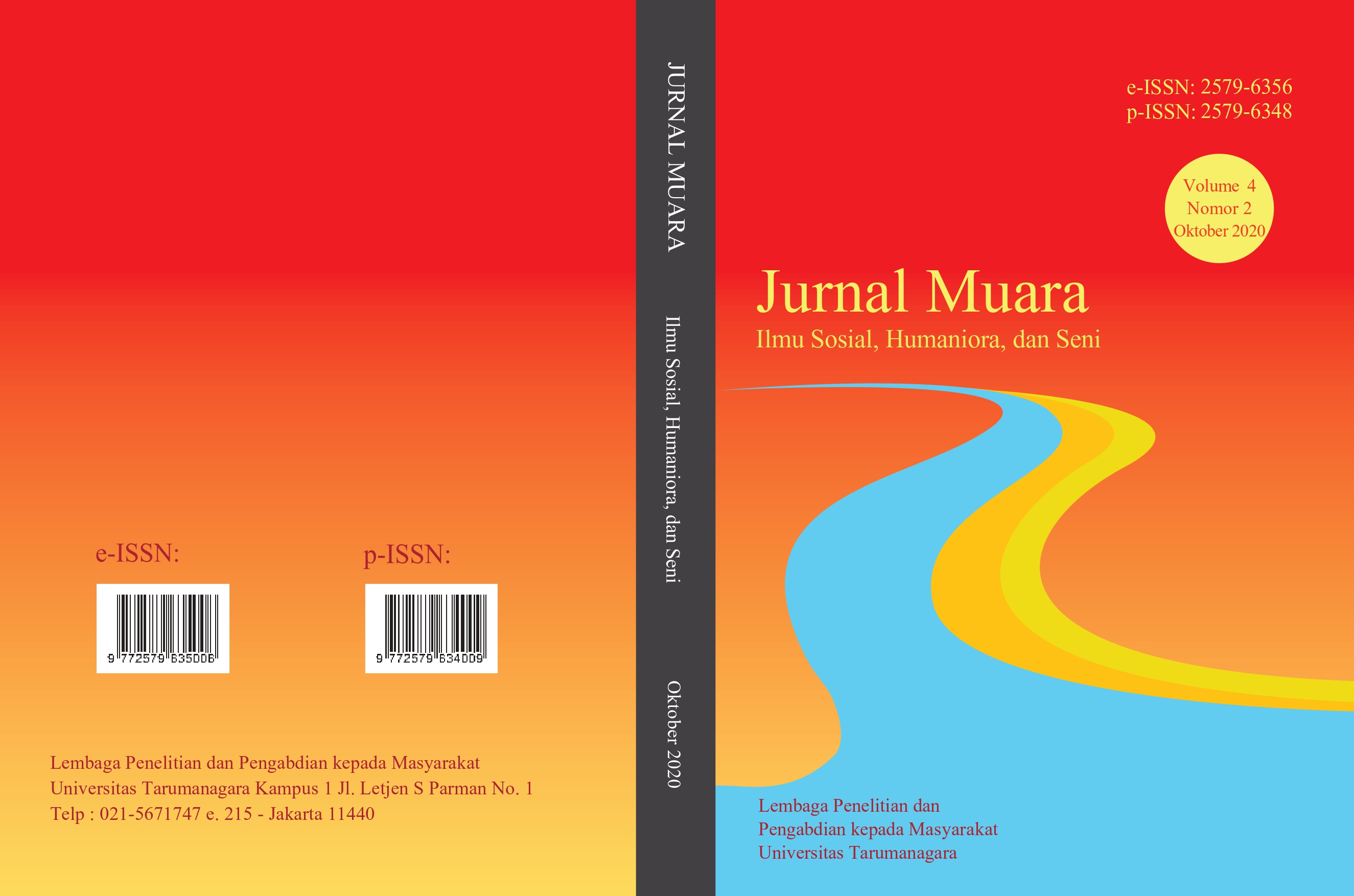PERAN JOB DEMANDS DAN JOB RESOURCES TERHADAP WORK-FAMILY ENRICHMENT PADA GURU DI SEKOLAH X
Main Article Content
Abstract
The teacher plays two main roles in his life, namely the role in work and in the family. The implementation of these two roles does not always cause conflict, but can improve the quality of life of teachers. Teacher job conflicts are closely related to job demand and job resources. Therefore, the purpose of this study is to see how the role of job demands and job resources on work-family enrichment in teachers. Work-family enrichment is enrichment obtained from individual experiences at work towards the welfare of family life, or vice versa. Job demands are defined as identical job demands with various pressures on the job (job stressor). Examples of job demands on teachers are the number of students who exceed the capacity in the classroom, the addition of subject matter outside of the teacher's interest / competence, the demand to adjust science to the times. Job resources are physical, social, and organizational aspects that serve as support or resources to achieve work goals. With the existence of job resources, job demands can be resolved. Psychologically, solving work demands based on available resources will stimulate the individual to grow and develop personally, in this case the personal growth of the individual has implications for increasing his welfare in working / family life. Participants in this study were 43 teachers in School X. Analysis of research results using multiple regression showed that job demands and job resources together played a role in predicting an increase in work-family enrichment by 12.5%. The implication of the results of this study is that various demands on work supported by resources at work can improve welfare in working life / family life.
Guru menjalankan dua peran utama dalam kehidupannya yaitu peran di pekerjaan dan keluarga. Menjalankan dua peran tersebut tidak selalu menimbulkan konflik, namun justru bisa meningkatkan kualitas hidup guru. Konflik pekerjaan guru sangat berhubungan dengan job demand dan job resources. Oleh karena itu, tujuan penelitian adalah untuk melihat bagaimana peran job demands dan job resources terhadap work-family enrichment pada guru. Work-family enrichment merupakan pengayaan yang diperoleh dari pengalaman-pengalaman individu di pekerjaan terhadap kesejahteraan kehidupan berkeluarga, atau sebaliknya. Job demands didefinisikan sebagai tuntutan-tuntutan pekerjaan yang indentik dengan berbagai tekanan dalam pekerjaan (job stressor). Contoh dari job demands pada guru adalah jumlah siswa yang melebihi kapasitas di dalam kelas, penambahan materi pelajaran di luar minat/kompetensi guru, tuntutan untuk menyesuaikan ilmu pengetahuan dengan perkembangan zaman. Job resources adalah aspek-aspek fisik, sosial, maupun organisasi yang berfungsi sebagai pendukung atau sumber daya untuk mencapai tujuan pekerjaan. Dengan adanya job resources maka job demands dapat terselesaikan. Secara psikologis, penyelesaian job demands berdasarkan job resources yang dimiliki akan menstimulasi individu untuk bertumbuh dan berkembang secara personal, dalam hal ini pertumbuhan personal yang dimiliki individu berimplikasi pada work-family enrichment. Partisipan pada penelitian ini adalah guru yang berjumlah 43 orang di Sekolah X. Analisis hasil penelitian yang menggunakan multiple regression menunjukan bahwa job demands dan job resources bersama-sama berperan memprediksi peningkatan work-family enrichment sebesar 12,5%. Implikasi dari hasil penelitian ini bahwa berbagai tuntutan dalam pekerjaan yang di dukung dengan sumber daya dalam pekerjaan dapat meningkatkan kesejahteraan dalam kehidupan berkerja dan berkeluarga.
Article Details
Section
References
Bakker, A. B., & Demerouti, E. (2014). Burnout and work engagement: The JD–R approach. Annual Review of Organizational Psychology and Organizational Behavior, 1, 389-411. Diakses dari https://doi.org/10.1146/annurev-orgpsych-031413-091235
Bakker, A. B., Hakanen, J. J., Demerouti, E., Xanthopoulou, D. (2007). Job resources boost work engagement, particularly when job demands are high. Journal of Educational Psychology, 99(2), 274–284. Diakses dari doi: 10.1037/0022-0663.99.2.274
Carlson, D. S., Ferguson, M., Kacmar, K. M., Grzywacz, J. G., & Whitten, D. (2011). Pay it forward: The positive crossover effects of supervisor work-family enrichment. Journal of Management, 37(3), 770-789. Diakses dari https://doi.org/10.1177/0149206310363613
Carlson, D. S., Kacmar, K. M., Wayne, J. H., & Grzywacz, J. G. (2006). Measuring the positive side of the work–family interface: Development and validation of a work–family enrichment scale. Journal of Vocational Behavior, 68, 131–164. Diakses dari https://doi.org/10.1016/j.jvb.2005.02.002
Greenhaus, J. H., & Beutell, N. J. (1985). Sources of conflict between work and family roles. Academy of Management Review, 10(1), 76-88. Diakses dari https://doi.org/10.5465/amr.1985.4277352
Greenhaus, J. H., & Powell, G. N., (2006). When work and family are allies: A theory of work family enrichment. Academy of Management Review, 31(1), 72–92. Diakses dari https://doi.org/10.5465/amr.2006.19379625
Lestari, W., & Zamralita. (2017). Gambaran job demands (job demands) dan dukungan pekerjaan (job resources) pada pegawai Institusi X DKI Jakarta. Jurnal Muara Ilmu Sosial, Humaniora, dan Seni. 1(2), 134-143. Diakses dari 10.24912/jmishumsen.v1i2.983
Pejtersen, J. H., Kristensen, T. S., Borg, V., & Bjorner, J. B. (2010) The second version of the copenhagen psychosocial questionnaire. Scandinavian Journal of Public Health, 38(3), 8-24. Diakses dari https://doi.org/10.1177/1403494809349858
Pemendikbud Nomor 15 Tahun 2018. Peraturan Menteri Pendidikan dan Kebudayaan Republik Indonesia. tentang Pemenuhan Beban Kerja Guru, Kepala Sekolah, dan Pengawas Sekolah.
Schaufeli, W. B., & Bakker, A. B. (2004). Job demand, job resources, and their relationship with burnout and engagement: A multi-sample study. Journal of Organizational Behavior, 25, 293–315. Diakses dari doi: 10.1002/job.248.
